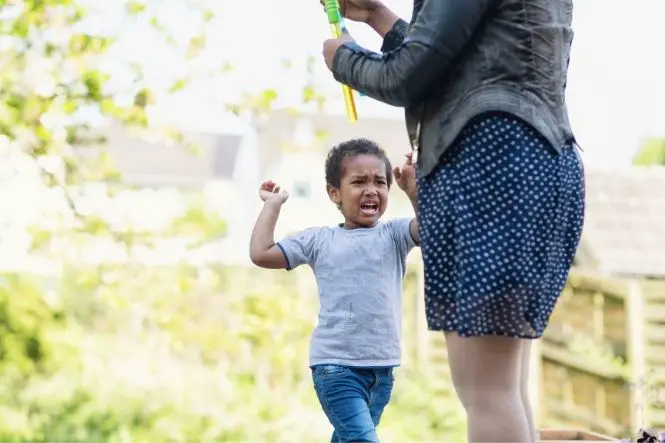Parents and child-carers will recognise the difficult situation that can occur when a child soils his or herself, and will know that accidents do happen occasionally even in older children, but sometimes this may not be a one-off occasion. Those children who are past the toilet training stage (usually around four years) and soil themselves more often may have a condition called encopresis.
Table of Contents
What Exactly Is It?
Encopresis is a term given to those children who soil themselves even though they may have previously used the toilet without problem. Often they may not fully defecate in their underwear but may suffer from leaking of faecal matter without being particularly aware of it.
What Causes Encopresis?
There are a variety of reasons why a child might develop encopresis. The usual cause, especially in the modern western diet is because of constipation and poor diet. When the stool becomes stuck in the colon and the person is unable to defecate normally they may leak some overflow fluids which can often be mistaken for diarrhoea and may be treated as so when in fact quite the opposite is true.
It may be that the child has some sort of psychological reason for suddenly not wanting to use the toilet and withhold their stool. Often this may be because they are afraid to ‘let go’ of the stool or because the passing of a hard stool may cause them some discomfort.
It is important for the parent or carer to reassure the child and take as much time as is needed in order to pass as tool and encourage them to use the toilet whenever they need. Do not put pressure on the child or punish them for soiling themselves as it may be something they cannot control and the fear of punishment may well make the situation worse.
In some rare cases, the encopresis may be caused by a neurological or physical problem that will need investigating and diagnosing by medical professionals.
Treating Encopresis
Before a treatment plan can be organised it is important to try and rule out any physiological or neurological problems that may be associated.
The problem may often be improved by making changes in the diet that includes increasing fluids and fibre content that will help to soften the stool and alleviate any constipation. If this is not sufficient your GP may recommend you see a constipation use who may advise the use of stool softening agents or a diet chart that involves have very regular meal times and a diary kept of all bowel movements thus allowing a pattern of toilet times to emerge and visits to the toilet planned as such.
Preventing Encopresis
In some circumstances the situation may not be preventable at all and may simply depend on the physical or psychological state of the child. If you have concerns you should speak to your GP or health visitor who may want to refer your child to a constipation nurse, behavioural specialist or other agency to try and discover if there is an underlying cause of the problem.
If you suspect your child is constipated encourage them to drink more clear fluids, fruit juices, eat a healthier diet and understand that they are not in trouble for wanting or using the toilet.
Encopresis can be a distressing problem for both the child and the carer. It is important to encourage the child to take a healthy diet, plenty of exercise, fluids and not to feel that using the toilet is a negative issue and something that should be encouraged.


